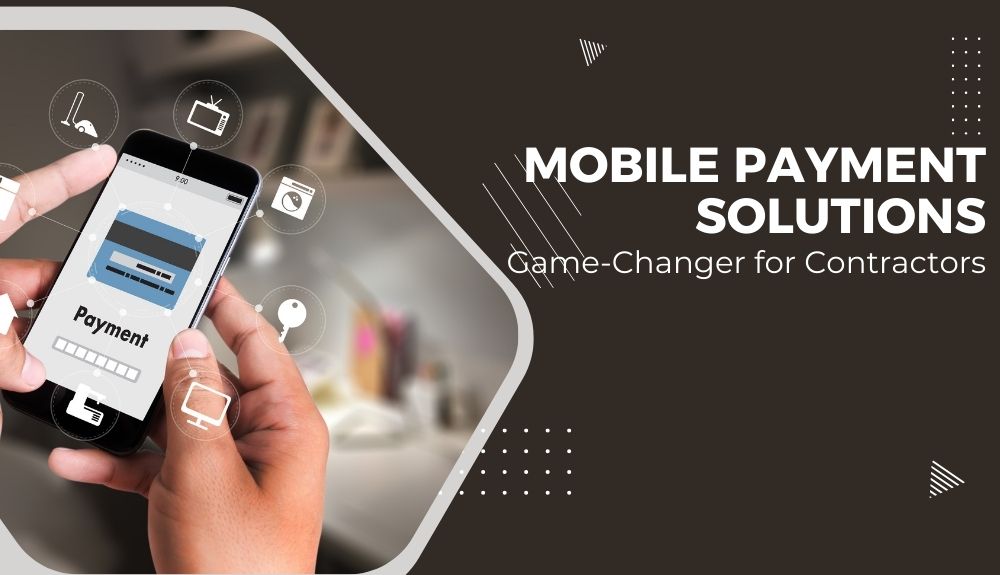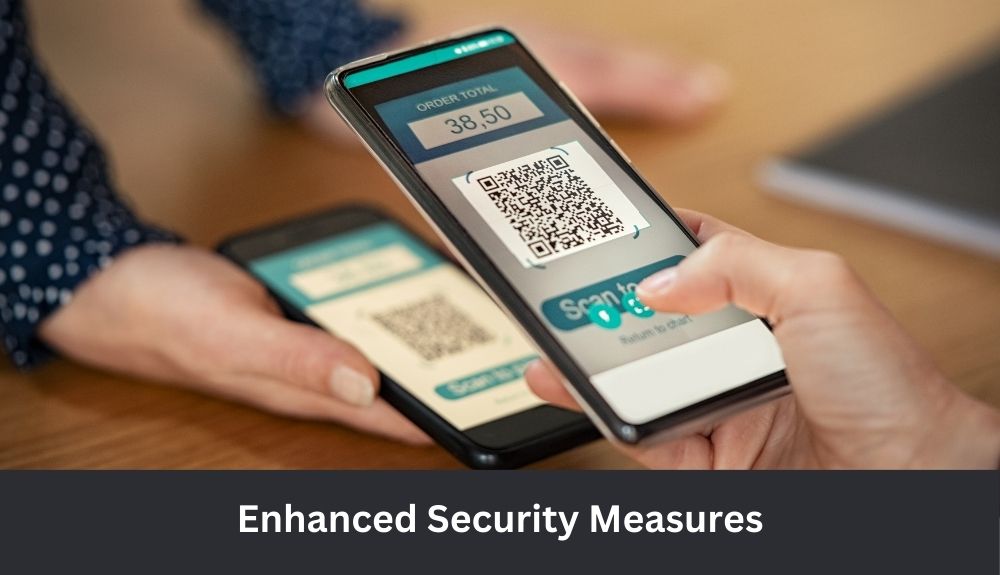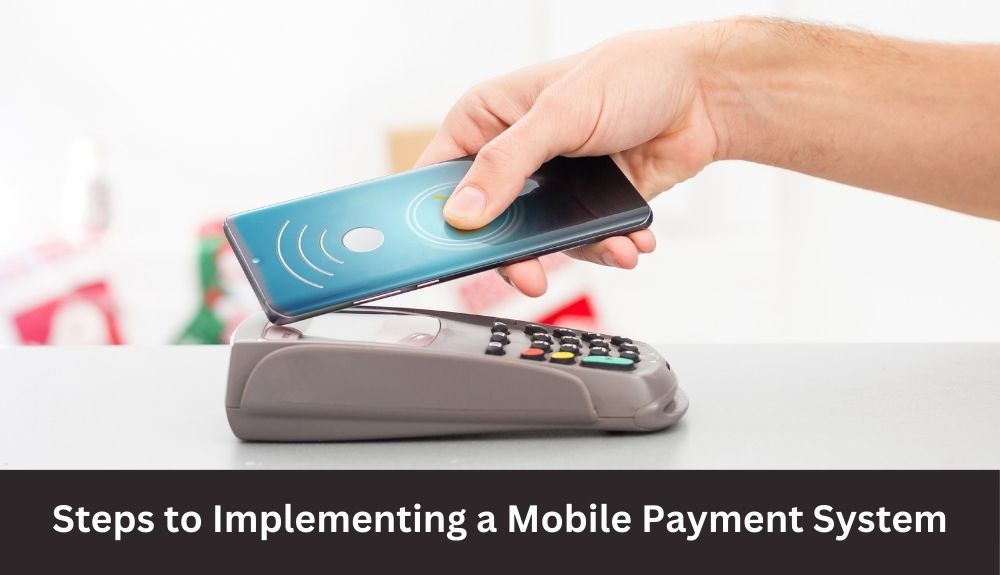
By alphacardprocess April 4, 2024
In today’s fast-paced digital world, the construction industry is experiencing a significant shift towards mobile payment solutions. For contractors, the convenience and efficiency of being able to process payments on-the-go are proving to be game-changers in their day-to-day operations. From streamlined invoicing processes to enhanced security measures, mobile payment solutions offer a plethora of benefits that can revolutionize how contractors conduct business. Let’s dive into why mobile payment solutions are becoming indispensable tools for contractors everywhere.
Advantages of Mobile Payment Solutions for Contractors
Mobile payment solutions offer a range of advantages for contractors, revolutionizing the way they do business. Gone are the days of waiting for checks to arrive in the mail or chasing clients for payments. With mobile payments, invoices can be sent and processed instantly, leading to faster cash flow and improved financial management.
Contractors can benefit from increased efficiency by accepting payments on-site through their mobile devices. This not only saves time but also enhances customer satisfaction by providing convenient payment options. Additionally, with secure technology in place, contractors can rest assured that transactions are safe and protected from potential fraud or data breaches.
Integration with accounting software further streamlines processes, allowing for seamless tracking of expenses and income. By automating these tasks, contractors can focus more on their projects and less on administrative burdens. Embracing mobile payment solutions empowers contractors to operate more effectively in today’s digital age.
Streamlined Invoicing and Billing Processes
Say goodbye to the days of paper invoices and manual billing processes. With mobile payment solutions, contractors can streamline their invoicing and billing procedures effortlessly. By using digital platforms, they can create and send invoices on-the-go with just a few taps on their smartphone or tablet.
This convenience not only saves time but also reduces the chances of errors that often occur in traditional billing methods. Contractors no longer have to deal with lost paperwork or delayed payments, ensuring a smoother cash flow for their business.
Furthermore, these mobile solutions offer customizable templates that allow contractors to tailor their invoices according to specific projects or clients’ needs. This level of personalization enhances professionalism and helps build stronger relationships with customers.
In addition, automatic reminders can be set up to ensure prompt payment from clients, minimizing any delays in receiving funds for completed work. The efficiency gained from streamlined invoicing and billing processes is invaluable for contractors looking to optimize their financial operations seamlessly.
Increased Efficiency and Time Savings
Mobile payment solutions offer contractors the ability to increase efficiency and save valuable time. By accepting payments on-the-go, contractors can avoid waiting for checks to clear or chasing down late payments. This streamlined process allows them to focus more on their projects and less on administrative tasks.
Additionally, with mobile payment solutions, invoicing becomes quicker and easier. Contractors can generate invoices instantly after completing a job, send them directly to clients’ devices, and receive prompt payments in return. This eliminates the need for manual paperwork and reduces the risk of errors or delays in billing processes.
Moreover, gone are the days of having to manually reconcile transactions at the end of each day or week. Mobile payment systems automatically sync with accounting software, providing real-time updates on financial data without any extra effort from the contractor’s side.
In essence, by embracing mobile payment solutions, contractors can streamline their operations, improve cash flow management, and ultimately boost their overall productivity in today’s fast-paced business environment.
Enhanced Security Measures

When it comes to mobile payment solutions for contractors, enhanced security measures play a crucial role in safeguarding sensitive financial information. Contractors can rest assured knowing that their transactions are protected through encryption and secure authentication processes. This level of security helps prevent data breaches and unauthorized access to payment details.
By utilizing tokenization technology, contractors can ensure that their customers’ payment information is never stored on their devices or servers. This added layer of security minimizes the risk of fraud and enhances trust between contractors and clients. Additionally, biometric authentication methods such as fingerprint or facial recognition add another level of protection to mobile payments.
Contractors can also take advantage of real-time monitoring and alerts provided by mobile payment solutions to detect any suspicious activity promptly. These proactive security measures help mitigate potential risks before they escalate, giving contractors peace of mind while conducting business on-the-go.
Integration with Accounting Software
Contractors can now seamlessly integrate mobile payment solutions with their accounting software, making financial management a breeze. By syncing transactions directly into accounting systems, contractors can easily track income and expenses in real-time without manual data entry.
This integration eliminates the need for double data entry, reducing errors and saving valuable time that can be better spent on project completion. With accurate and up-to-date financial information at their fingertips, contractors can make informed decisions to optimize their business operations.
Additionally, integrating mobile payments with accounting software enhances transparency and accountability. Contractors have a clear overview of their financial status, enabling them to monitor cash flow effectively and plan for future projects or investments.
This streamlined integration simplifies the entire invoicing and bookkeeping process for contractors while improving accuracy and efficiency in managing finances.
Real-Life Examples of Contractors Using Mobile Payment Solutions
Picture this: a busy contractor finishing up a project and effortlessly sending an invoice to the client right from their smartphone. No more chasing down checks or waiting for payments to come in the mail. With mobile payment solutions, contractors like John from ABC Construction can now accept credit card payments on-site, making transactions quick and convenient.
Sarah, a freelance landscaper, no longer has to worry about carrying around cash or waiting weeks for checks to clear. By using a mobile payment app, she can securely process payments instantly and track her earnings in real-time. This convenience not only improves her cash flow but also enhances customer satisfaction.
From plumbers to electricians, contractors across various industries are embracing mobile payment solutions as the new standard of doing business. The ease of use and efficiency offered by these tools have transformed how professionals manage their finances on-the-go.
Steps to Implementing a Mobile Payment System

Implementing a mobile payment system as a contractor can be a game-changer for your business operations. The first step is to research and choose the right mobile payment solution that aligns with your specific needs. Consider factors like transaction fees, ease of use, and integration capabilities.
Next, set up your account with the chosen mobile payment provider. This typically involves creating an account, linking it to your bank information, and customizing settings according to your preferences.
Once your account is set up, integrate the mobile payment system into your existing invoicing and billing processes. Train yourself and your team on how to use the new system effectively to ensure a smooth transition.
Communicate with clients about the new payment options available to them through the mobile platform. Encourage them to adopt this convenient method for faster transactions.
Monitor the performance of the mobile payment system regularly and gather feedback from both employees and clients on its functionality. Make adjustments as needed to optimize efficiency and user experience.
Potential Challenges and How to Overcome Them
Implementing a mobile payment system as a contractor may come with its own set of challenges. One common hurdle is the resistance to change among team members who are used to traditional payment methods. To overcome this, it’s crucial to provide comprehensive training and demonstrate the benefits of using mobile solutions in terms of efficiency and convenience.
Another challenge could be ensuring data security and preventing fraud when processing payments electronically. Contractors can address this by choosing reputable mobile payment providers that offer advanced encryption technologies and multi-factor authentication.
Additionally, some contractors might face issues with integrating mobile payment systems with their existing accounting software or project management tools. This obstacle can be tackled by selecting a payment solution that seamlessly integrates with popular accounting platforms like QuickBooks or Xero.
Moreover, fluctuating transaction fees and processing costs could pose a financial challenge for contractors utilizing mobile payment solutions. By carefully comparing different providers and negotiating fees based on transaction volumes, contractors can mitigate this issue effectively.
Maintaining consistent internet connectivity in remote job sites or areas with poor network coverage may hinder the smooth operation of mobile payments. Contractors can consider investing in portable Wi-Fi hotspots or exploring offline payment options as backups to ensure uninterrupted transactions regardless of location.
The Future of Mobile Payment Solutions in the Contractor Industry
As technology continues to evolve, the future of mobile payment solutions in the contractor industry looks promising. With advancements in security measures and integration capabilities, contractors can expect even greater convenience and efficiency when it comes to managing their finances on-the-go.
In the coming years, we can anticipate more seamless integrations between mobile payment systems and project management software, allowing for real-time tracking of payments and expenses. This will not only streamline operations but also provide contractors with valuable insights into their financial performance.
Additionally, as contactless payment methods become increasingly popular, contractors can leverage these technologies to offer customers a convenient and secure way to make payments. This shift towards digital transactions is not only more efficient but also aligns with the growing preference for cashless transactions in today’s fast-paced world.
The future of mobile payment solutions in the contractor industry holds great potential for simplifying financial processes and enhancing overall business operations.
Conclusion
Mobile payment solutions have revolutionized the way contractors do business. With streamlined invoicing, increased efficiency, enhanced security measures, and seamless integration with accounting software, mobile payments offer a range of benefits for contractors looking to improve their operations.
Real-life examples showcase how these solutions have transformed businesses and improved customer satisfaction. By following simple steps to implement a mobile payment system and overcoming potential challenges along the way, contractors can set themselves up for success in an increasingly digital world.
As technology continues to advance, the future of mobile payment solutions in the contractor industry looks promising. Embracing this innovation can help businesses stay competitive and adapt to changing consumer preferences.
Mobile payment solutions are indeed a game-changer for contractors seeking to streamline processes, save time, enhance security measures, and improve overall efficiency in their day-to-day operations. By leveraging these tools effectively, contractors can position themselves for long-term success in an evolving marketplace.